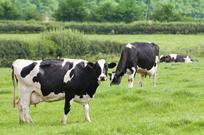See how soil fits into the methane profile of agricultural emissions
Methane cycle
Methane (CH4) is not a significant GHG for UK agricultural soils, where the UK is more of a sink due to the action of soil bacteria converting the methane into more complex soil carbohydrates. Deciduous woodland with a relatively high pH soils has been shown to have the highest rates of methane uptake in the UK along with wetland areas. The influence of different plant species on this uptake of methane in wetland areas can be read here. Overall, it was found that where soil organic carbon measurements where high, methane emissions were low. Therefore suggesting that plant species and their density can influence methane emission from wetlands, and should be considered when developing climate change mitigation policies and plans.
Soils which have had regular fertilizer additions or have high ammonium content have been shown to have much smaller populations of methanotrophic bacteria (those bacterial populations that remove methane) and are therefore not very effective methane sinks; while soils which have organic manures added to them have been shown to have higher than average populations of methanotrophic bacterial populations.

